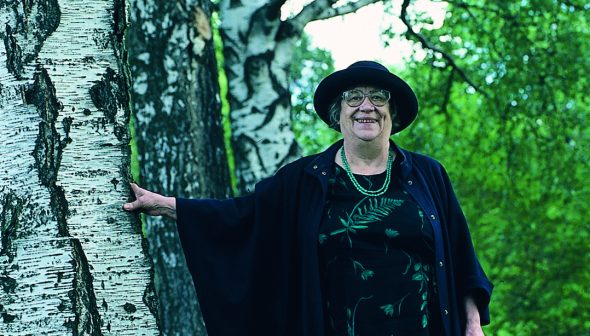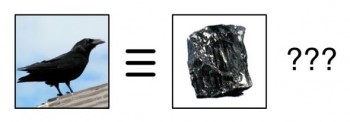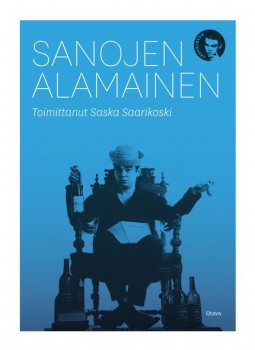Search results for "herbert lomas/www.booksfromfinland.fi/2004/09/no-need-to-go-anywhere"
Across Europe
30 June 1990 | Archives online, Fiction, Prose
Mika Waltari (1908–1979) was a prolific writer, journalist and translator. In addition to historical novels, he wrote short stories, travel books, thrillers, plays, books for children, film scripts and poetry. The newly independent Finland of the 1920s, as it emerged from a traumatic period of civil war, declared that its windows were open to Europe, and Waltari’s first novel Suuri illusioni (‘The great illusion’), written in Paris when he was only 19, represents urban romanticism and the world of European capitals.The optimism and enthusiasm for modern life of the 1920s are strongly present in Waltari’s travelogue, Yksinäisen miehen juna, (‘Lonely man’s train’; 1929), an account, both ironic and engagingly naïve, of a great adventure in Europe after the post-1918 redrawing of the continent’s map. The book’s motto is a phrase from Paul Morand, a writer Waltari admired: ‘How is it possible to remain stationary when time slips like ice through our hot hands.’ This work of Waltari’s youth has never before been translated. The author travels by ship and train as far as Turkey; in the following extract, he has reached Hungary
Yksinäisen miehen juna (‘Lonely Man’s train’)
How adorable express trains are – the mighty engines, the rhythm of the rails, the sway of the carriages, the flashing-by of the milestones, the gravel embankments contracting into speeding lines. A train is the only place you can be completely at ease, free from heartache, free from longing, free from tormenting thoughts. Whenever I die, I hope it will be on a train flashing towards some unknown town at eighty miles an hour, with mountains looming on the horizon, and the points lighting up in the descending dusk…. More…
An eye of the unseen
30 June 2007 | Archives online, Fiction, poetry
Poems and aphorisms by Aaro Hellaakoski. Introduction by Pertti Lassila
Evening
How tranquilly the evening’s darkening,
dusk deepening beneath the trees.
Consult the long alleyways of the skies
for the gift of this evening
and the cause of your ease.
But the waste! the pain and stress –
those reachings into secrets of the dark –
quarrying endlessness,
plummeting bottomlessness,
quizzing every question mark.
Why this rummaging into whence and why?
Empty let’s be. Open and free.
Let secrets come, or let them fly
away, diffuse like cloudscapes
or whisperings through a tree.
Eyes must glow as your spirits peer
through a wakeful cranny in where you are.
Only the silent have ears to hear.
When the doorstep feels the touch of a toe
only the vigilant’s door is ajar.
Huojuvat keulat (’Swaying prows’, 1945) More…
A respectable tragedy
30 June 1988 | Archives online, Fiction, Prose
An extract from the novel Säädyllinen murhenäytelmä (‘A respectable tragedy’, 1941). Introduction by Kaija Valkonen. The central theme of the novel is love: young, old, passionate, innocent, proper, improper. The main characters are a middle-aged couple, the doctor and his wife Elisabet, his sister Naimi and the love of her youth, Artur. Hämäläinen’s fine irony, careful and thoughtful psychology and colourful language have made the novel a bestseller. Naimi, an aesthete and an uncompromising character, has left her husband Artur twenty years ago because of his infidelity. But slowly she begins to forgive: this tragic but compassionately told love story, not without tragicomedy and humour, ends in reconciliation
Embalmed passion
In that new Helsinki of the ‘thirties, which had opened like a garden flower, gaily coloured, sunlit, practical and impractical, in love with every novelty of the moment, which it thought astonishing, lived Naimi Saarinen, back from her exile, where she had been driven by wounded passion twenty years before. More…
This is a map
30 June 1992 | Archives online, Fiction, poetry
from Tasanko 967 (‘Plain 967’, Kirjayhtymä, 1991). Introduction by Jukka Petäjä
and he woke to the babble of a hungry baby and his palate, his mouth was dry and waking he recalled images of bodies battered in the violent overthrow of Vilnius TV Station and he dozed off into the sound of suckling
Mole’s hole
31 March 1992 | Archives online, Fiction, Prose
Extracts from Pikku karhun talviunet (‘The little bear’s winter dreams’, published posthumously in 1974, edited by Mirkka Rekola), prose fragments and fairy-tales. (See commentary by Soila Lehtonen)
Vauveli-Vau had grown up. She went round to Mole Hill and went into Mole’s Hole, so she could work in peace. As there are a lot of Mole’s Holes in the earth, no one had any idea where Vauveli-Vau had gone. They weren’t all that keen to know, as there’s always rather a lot to do in Mole’s Hole: pine cones and branches to be collected, trips to be made to the spring in the forest, an eye kept on Dottypot in the fire-embers, and at night you have to get up to see which bird it is that’s singing in the old rotten tree. But still more laboursome are the thick books in foreign languages and the pile of blank paper.
Quite a few days and nights had gone by before Vauveli-Vau was used to being in Mole’s Hole. During those days a lot of remarkable things occurred. A slug flourished his horns and muttered: ‘Who on earth would want to lie about in his cottage in fine weather like this?’ More…
Poems, poèmes
30 June 1987 | Archives online, Fiction, poetry
Poems from Mies joka rakasti vaimoaan liikaa (‘The man who loved his wife too much’, 1979 and Vaikka on kesä (‘Although it’s summer’, 1983). Interview by Markku Huotari
Look at this epitaph with whiskers.
Threw herself so gladly into my troubles, sometimes she seemed to be bearing, properly, my burdens.
A dog called Julia. Combining
July and Yuletide.
Often thought of putting her down, so she wouldn’t need to die.
Smash her skull or break her neck
with my own hands, to stop her mourning her premature death.
Which still seems to be delaying.
She puts her four paws gently down, one at a time. So the Lord won’t hear her still about
and whisk her away.
Two years ago, she steps on some glass, her toe sticks out, a tendon’s cut.
She looks at me. Believe it or not,
I’m grieved by little Julia’s lot: for a second
I think the blood’s dripping from my own heart. More…
Poems
30 September 1979 | Archives online, Fiction, poetry
Introduction by Thomas Warburton
1
What about going up into the birch tree together
so high till it bends with our weight
and we’re thrown, two seeds on one dandelion chute
down into the lake and its quaking looking glass
There we wash around together without
a stitch on our feelings
We let ourselves sink down to the lakefloor and set up
house there for a time
Among the fakirs the watercolourists and the alcoholics
we can hear the water sprite fluting, all out of tune
like a gipsy band gone down with the ship. More…
Poems
30 June 1979 | Archives online, Children's books, Fiction, poetry

Kirsi Kunnas. Photo: Jyrki Luukkonen
Poems from Tiitiäisen satupuu (‘The Tittytumpkin’s fairy tree’, 1956)
The old water rat
There’s a shiver of a reed,
a rustle in the grass,
a slop-slopping through the mud:
Who’s that puffing past?
Who’s that peeping there?
A whiskery head
and a muddy tread.
It’s Old Mattie
Water Rattie.
Squeezing water from his eyes,
trickling from his sneezing nose,
freezing and sneezing.
Then: Oh dear Misery!
A-snee, a-snee, a-snizzery! More…
Looking back on a dark winter
31 December 1989 | Archives online, Fiction, Prose
Extracts from the autobiographical novel Talvisodan aika (‘The time of the Winter War’), the childhood memoirs of Eeva Kilpi. During the winter of 1939–40 she was an 11-year old-schoolgirl in Karelia when it was ceded to the Soviet Union and the population evacuated
Time is the most valuable thing
we can give each other
War’s coming.
One day my father comes out with the familiar words in a totally unfamiliar way, while we’re sitting round the kitchen table eating, or just starting to eat.
He says to mother, as if we simply aren’t there, as if we don’t need to bother, or as if listening means not understanding. Or perhaps they’ve simply no other chance to speak to each other, as father’s always got to be off hunting, or on his way to the station, and mother’s always cooking. More…
The house in Silesia
31 December 1989 | Archives online, Fiction, Prose
A short story from Talo Šleesiassa (‘ The house in Silesia’, 1983). Read the interview
We set off, my brother-in-law and I, at the beginning of September. The tourist season was already over, and on the Gdansk ferry there was stacks of room for my brother-in law’s Volvo and the two of us.
We’d driven from his home on the shore of Lake Mälar to the ferry port at Nynäshamn, about fifty miles south of Stockholm. We’d driven in an atmosphere of cheerful resolution, accelerator down, but going steadily. The resoluteness was due to my brother-in-law’s decision after forty years’ absence to visit his childhood home. If it was still standing, that is – or whatever of it was.
‘Oh the house is definitely still in place there all right,’ he said: ‘I’ve got that sort of tickly feeling in my arse.’ It was a direct translation from the German – German humour of the vulgar variety centring round the bottom. More…
Encounters with a language
12 December 2014 | Articles, Non-fiction

Mistranslation: illustration by Sminthopsis84/Wikimedia
Mother tongue: not Finnish. How do people become interested enough in the Finnish language in order to become translators? In the olden days some might have been greatly inspired by the music Sibelius (as were the eminent British translators of Finnish, David Barrett or Herbert Lomas, for example, back in the 1950s and 1960s). We asked contemporary translators to reminisce on how they in turn have become infatuated enough with Finnish to start studying and translating this small, somewhat eccentric northern language. Three translators into English, one into French, German and Latvian tell us why
Brief lives
30 September 1989 | Archives online, Fiction, Prose
Rosa Liksom’s characters live in the tiny villages of empty Lapland, speaking a dialect that rings oddly in the ears of the southern Finnish majority; or they may inhabit anonymous towns, but there, too, life is full of the anguish of existence. Liksom, whose black comedy can be compared with that of the Danish writer Vita Andersen, is able to cram into her short texts complete life histories, bizarre, comic or tragic. Her first volume of short stories, Yhden yön pysäkki (‘One night stand’) appeared in 1985; the following short stories are from Tyhjän tien paratiisit (‘Paradises of the open road’, 1989)
We got hitched up the 14th of November and by the end of the month it was all over. As far as I’m concerned call it a marriage exactly two weeks too long. We hadn’t set eyes on each other till the Pampam that’s the place me and the girls go after work for a drink and I was sitting there having one with them when who comes through the door but this bloke and it hits me. That bloke’s for me. In the end I went over to his table and said up yours stud. We went over to my place to bunk down and after that I couldn’t get the sod out. The bloody shitbag got his claws into me and hung on just on the strength of that one night. He glued himself to my bed. Lay there flat out when I set off to work and shit he was still there when I came back only arse up this time. More…
Country matters
30 June 2001 | Archives online, Fiction, Prose
A short story from Peili (‘Mirror’, Tammi, 2000). Introduction by Suvi Ahola
I’m getting so old, my Master and Mistress no longer take note of when I’m on Heat. They don’t even notice when some moisture comes dripping out of my innards, as a sign of it, like they did in the good old days. Anyway, this time I really boobed, I dirtied my Mistress’s Christmas slippers with my secretions. So what could I do? – if it drips it drips. I happened to be lying on my Mistress’s feet at the time, she’d invited me there herself. ‘Spot, Spot, come and warm my feet,’ she said. Of course I went, I always have done when I’m called, it’s rather nice. Your belly gets nice and warm there, and if you’re lucky your Mistress scratches your back now and then with her knitting needle. I sleep and snore a little – it amuses my Mistress and Master. But then the warming of my belly led to this boob – a big dose of this wetness slurped onto my Mistress’s feet. It caused a sudden departure. My Mistress yelled, and my Master flung me out into the yard. I’d scarcely managed a squeak before I found myself in the snow. I shan’t forgive them, no. It’s beyond my comprehension.

 The poet and translator Pentti Saarikoski (1937–1983) was a legend in his own lifetime, a media darling, a public drinker who had five children with four women. His oeuvre nevertheless encompasses 30 works, and his translations include Homer and James Joyce. The journalist Saska Saarikoski (born 1963) has finally read all that work – in search of the father whom he seldom met. The following samples are from his annotated selection of Pentti Saarikoski’s thoughts over 30 years, Sanojen alamainen (‘Servant of words’, Otava, 2012; see
The poet and translator Pentti Saarikoski (1937–1983) was a legend in his own lifetime, a media darling, a public drinker who had five children with four women. His oeuvre nevertheless encompasses 30 works, and his translations include Homer and James Joyce. The journalist Saska Saarikoski (born 1963) has finally read all that work – in search of the father whom he seldom met. The following samples are from his annotated selection of Pentti Saarikoski’s thoughts over 30 years, Sanojen alamainen (‘Servant of words’, Otava, 2012; see